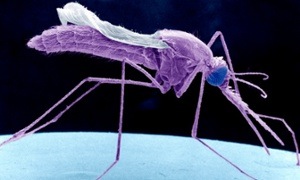
A team of international researchers have made a major step towards a vaccine to for malaria, something scientists have long been trying to achieve as the disease kills up to 600,000 people each year.
There have been two major roadblocks – scientists did not know what part of the disease the immune system needed to target, nor did they know the mechanism used by the immune system to block an infection.
The head of the Burnet centre for biomedical research in Melbourne, Professor James Beeson, said he and his team had managed to unlock the strategy the immune system needed to use to target and kill the disease.
Researchers have long known that antibodies alone were not very effective at targeting the malaria organism, leading them to believe the antibodies in people resistant to malaria must be getting help from elsewhere.
“What we discovered is that the antibodies needed to recruit other proteins in the blood, known as a complement, to help them to coat the malaria organism,” Beeson said.
“By working together, these two things are a double-hit that stops malaria from infecting red blood cells.”
The finding means a vaccine could be created to rapidly induce this type of immune response and prime it to fight malaria upon infection, especially in children, who are those most often killed by the disease.
Malaria, a parasitic disease spread by mosquitos, is complicated to study, especially compared to illness caused by viruses and bacteria.
The organism is comprised of about 5,000 different genes, on average 50 times more than viruses. Polio, on the other hand, contains just 11 genes.
While a number of malaria vaccines have been trialled, none have been especially effective, and Beeson hopes the discovery will allow a stronger, more targeted vaccine to be developed and trialled.
“This is very exciting for us, and something we have been working on for about 10 years,” he said.
“There were many techincal hurdles to overcome as we examined and explored the different avenues used by the immune system.”
The length of time needed to fine-tune a vaccine to be trialled in humans would depend on funding, Beeson said.
“That’s the hardest thing really, and we’re hoping pharmaceutical companies, which are the major organisations that produce vaccines, will engage with us on this. Because in the absence of strong interest from pharma, it’s hard to advance malaria research forward.”
The discovery was made along with researchers from the Kenya Medical Research institute, the Queensland Institute of Medical Research, the London School of Hygiene and Tropical Medicine, LaTrobe University, and the Walter and Eliza Hall Institute.
Their findings were published in the international journal, Immunity, on Wednesday.
